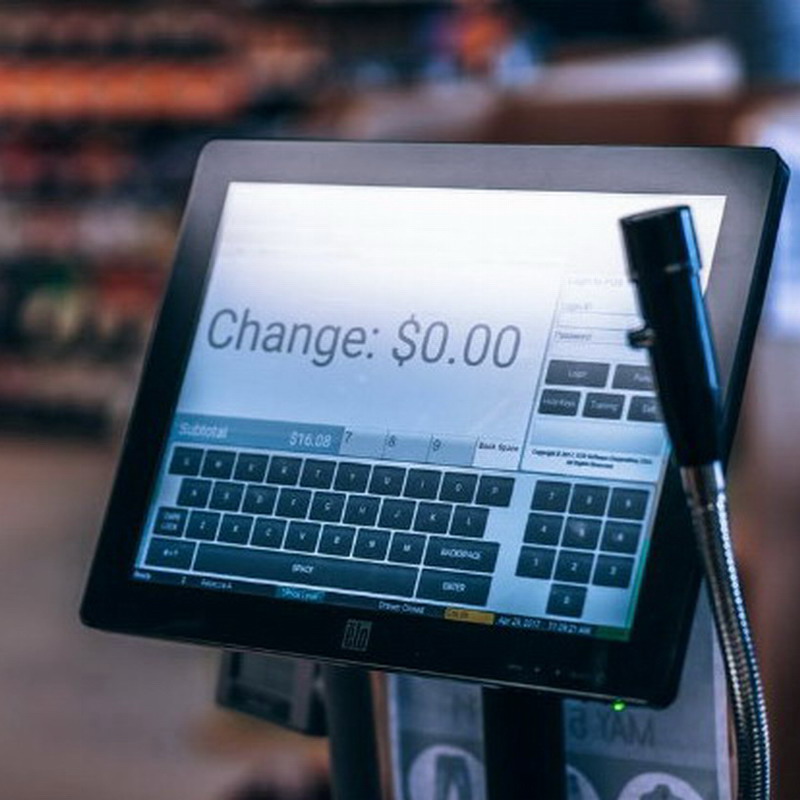A Point-of-Sale system is much more than a cash register. Retail POS Systems let you do a lot more, like instantly recording the transaction, updating inventory, helping you analyze the relevant data to get meaningful information for your business. So, when you are shopping for a POS System, what should you be looking for?
The Facets And Features Of A Good Retail POS System
You should be clear on what you need before you select a POS solution. Prepare a list of features you want, then begin your search.
Choose A System That Will Support Your Business Model
The features needed for a restaurant Point-of-Sale system will not be the same as one needed for a grocery store or a supermarket. For example, restaurants do not require integrated barcode scanners in their POS systems like in supermarkets and grocery stores.
Look for a POS System that supports many different business models. You may need that flexibility if you expand your business in the future. Specifically, look for features that will suit your current business and its needs.
Does The POS System Support Different Sales Channels?
If you buy a POS solution for your brick & mortar store and then find out that it doesn’t support and integrate online sales, it is going to affect your business efficiency.
A good retail POS system, like Shopify POS, lets you sell anywhere – in-stores, on-the-go using mobile scanners and card readers, through your website or mobile platform – and keeps it all together to ensure that your business runs smoothly, without hiccups in inventory, customer information, and sales records.
Does It Provide Good Inventory Management?
Your Retail POS System should update your inventory for each sale, to ensure that you do not have any product stock issues. It should update your stock, keep track of stock levels for all products. If an in-demand product is getting near reorder levels, your POS system should alert your purchase section to reorder that product.
It should also be able to do research, analyzing sales and stock records to find which products sell fast and need restocking, which products are slow moving, so you should stop buying these till current inventory gets cleared, and so on.
Does It Create Sales Records
For each transaction, the POS system should create a sales record with detailed information about the products sold, the customer who made the purchase, the sales clerk who recorded the sale, the date and time. These will help your databases stay updated and also enable you to get detailed information for generating reports and analyzing data.
Does It Create Customer Records
The POS system should create customer records with their transactions, with their name, address, the items they bought, discounts given, and other relevant information. These will facilitate analysis of customer buying patterns, their preferences, and which products they buy most often. All these can help you personalize customer experiences, provide appropriate cross-sell suggestions, and design customized promotion campaigns.
Does It Enable You To Take Care Of Refunds And Exchanges
The Retail POS system should also be able to facilitate redress of customer grievances when they are dissatisfied with a purchase and want to return an item. In that case, the POS system should provide an intuitive way to go back and make changes to the invoice, to reflect a refund or exchange.
Will The POS System Play Well With Other Areas Of Your Business?
Your POS system should be able to connect to other automated processes like order and supply chain management systems. Look for a solution that automatically updates records in various aspects of your operations, like inventory, sales, orders, and customer records. Some POS systems can also generate purchase orders for items in short supply. Good retail POS solutions should automate as many processes as possible to avoid errors, inconsistencies and duplication of records.
Is It Easy To Use?
The UI and operations should be easy to learn and use, enabling your employees to start working with it quickly. A system that entails a lot of training to use will be a problem when hiring and training new employees. The retail POS System should have an intuitive User Interface and should work as expected. One should not have to refer to the manual for each and every operation.
Cloud or Local?
If you want a system that is installed on your premises, it will involve a lot of investment in hardware, software, and setup cost. However, most business are turning towards cloud-based solutions like Shopify for their retail business. These reduce your costs as they do not require the servers to be physically installed and maintained on your premises. Cloud based services can be acquired by just paying a subscription fee to the service providers in exchange for their services – hardware and software included. It also facilitates smooth scaling as your business grows.
Pricing
The vendor should be able to clearly give you the price for their software or cloud-base service, with no hidden costs that give you nasty surprises later on.
Do your research and find a retail POS System like Shopify POS that integrates well with your entire retail solution platform. It should keep your data, especially inventory, updated in real time, enable you to track stock, sales, and customer details for analytics. It should have good reporting capabilities that enable you to draw insights from the data collected, to help you learn how to improve various aspects of your business, and attract and retain your customers.

